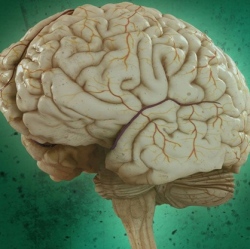
In the early 1980s, University of California San Francisco neuroscientist Benjamin Libet conducted an experiment to assess the nature of free will. Subjects hooked up to an electroencephalogram were asked to push a button whenever they liked.They were also asked to note the precise time that they first became aware of the wish to move.
Libet’s experiments showed that distinctive “readiness potential” brain activity began, on average, several seconds before subjects became aware that they planned to move. Libet concluded that the desire to move arose unconsciously, and “free will” could instead only come in the form of a conscious veto of what he called “free won’t.”
The Charite’s Bernstein Center for Computational Neuroscience researchers have now created an experiment to test the “free won’t” part. Using state-of-the-art measurement techniques, the researchers tested whether or not after the readiness potential (RP) for a movement has already been triggered, people are able to stop planned movements (under conscious control).
The researchers asked study participants to participate in a “duel” game with a computer and monitored their brain waves using electroencephalography (EEG). A specially-trained computer was then tasked with using this EEG data to predict when a subject would move (the aim: out-maneuver the player). The researchers manipulated the outcome of the game in favor of the computer as soon as brain wave measurements indicated that the player was about to move.
The idea was that if subjects were able to evade being predicted, this would be evidence that subjects could control their actions for much longer than previously thought.
The researchers discovered that subject could achieve that, but that there‘s a “point of no return” in the decision-making process [at about 200 milliseconds after the RP], after which cancellation of movement is no longer possible. “A person’s decisions are not at the mercy of unconscious and early brain waves. They are able to actively intervene in the decision-making process and interrupt a movement,” says Prof. John-Dylan Haynes, PhD., research-team leader.
Further studies are planned to investigate more complex decision-making processes.
